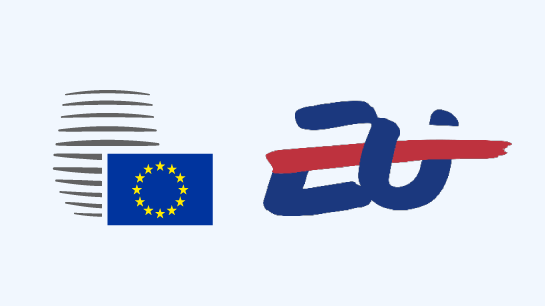Polish Presidency to lead on European competitiveness and security through rail
Supporting the competitiveness of European companies by reducing administrative burdens, ensuring a level-playing field for EU businesses and investing in vital rail projects, are opportunities for the Polish Government as it takes over the Presidency of the Council of the EU.
UNIFE Director General Enno Wiebe welcomes the Polish Presidency’s twin-focus of competitiveness and security, as the nation has become a major EU decision maker, leading economic performer and dedicated to ensuring Europe is prepared for future challenges.
As part of its EU Presidency priorities, Poland is committed to boosting competitiveness across the Union and ensuring European industry can thrive. This includes reducing the administrative burdens on companies, in particular SMEs, to further support the future of European innovation and restore fair competition for EU industry in the global arena.
UNIFE has consistently heard from SMEs in the rail industry on how these burdens are taking up considerable resources among companies who do not have compliance or reporting teams, and how they are facing difficulties to adapt to ever-changing legislation.
With plans in the Presidency programme to simplify regulations, discuss improvements to processes around Regulatory Impact Assesments and improve regulations to fit entrepreneurs, this is a strong opportunity to drive an agenda which supports growth and European prosperity.
The Polish Government’s commitment and support for high-speed rail projects, as shown through the Centralny Port Komunikacyjny (CPK) project, comes at a positive time, as the EU Commission considers a high-speed rail plan to connect Europe’s capitals and major cities. This plan is central to both Mario Draghi and Enrico Letta’s recommendations to boost European competitiveness.
Poland’s place in the TEN-T Network is vital, as it is a gateway to the Baltic countries by rail (via the Rail Baltica project), as significant EU and Polish investments have also gone into the high-speed line from Warsaw to Łódź, and beyond. Keeping these investments going to better connect Poland to its neighbours from a passenger and security perspective, is vital.
Plans to profoundly modernise its railway fleet are also underway, as according to the latest World Rail Market Study, the Polish rolling stock market will become the largest in the region by the end of the decade, reaching an annual value of €1.9bn - more than doubling from €800m in 2021.
At the heart of boosting European security is the full implementation of the TEN-T Network – which includes vital rail components such as infrastructure upgrades on the European Transport Corridors and the deployment of the European Rail Traffic Management System – to have the resources and reliable funding to be completed within the agreed deadlines. However, moving key defence resources to Europe’s Eastern borders - such as tanks, trucks and personnel across borders within the EU - is challenged by the lack of a strongly interconnected railway network. This is due to diverging national legal rules, heavy bureaucracy, limited and insufficient dual-use infrastructure, and the delayed ERTMS roll-out on key corridors. Further challenges include railway gauge incompatibility within the EU and between relevant candidate countries, such as Ukraine and Moldova.
ERTMS is a proven digital rail system, which ensures easier, faster, safer and more frequent movement for passenger, freight and in emergencies, military services.
The European Commission decided to support 95 military mobility projects across the Union, however the related supporting Connecting Europe Fund envelope of €1.74 billion has already been committed since 2024, with many rail and security-related mobility projects left without sufficient resources.
UNIFE would support discussions on reinvesting in the fund, and using it to not only ensure rail has dual civillian and military use, but to ensure these investments have civillian passenger and freight rail benefits, which drive European competitiveness and digitalisation through ERTMS and other infrastructure upgrades.
Quotes attributable to UNIFE Director General Enno Wiebe
“Europe needs to solve big challenges, in particular on the competitiveness of its industry. We are confident the Polish Presidency is ready to guide and present solutions. UNIFE and the European Rail Supply Industry stand ready to provide support.”
“We see an agenda with great potential to drive growth and European prosperity, by addressing reporting burdens and build a legislative framework which supports SMEs and entrepreneurs. This is a great opportunity to get the ball rolling on vital economic reforms.”
“TEN-T and all of its central components – such as infrastructure upgrades, ERTMS and improving key corridors –can and should future-proof the security of the European Union, improve rail services and boost digitalisation. For that to happen, long-term EU funding and financing should be ensured.”
About UNIFE
Based in Brussels since 1992, UNIFE is the Association representing the European Rail Supply Industry at EU and international level. UNIFE gathers more than 120 direct company Members – from numerous SMEs to major industrial champions from all over Europe – active in the design and manufacture of rolling stock (i.e. trains, metros, trams, freight wagons) as well as rail signalling and infrastructure equipment. UNIFE also brings together national rail industry associations from 11 European Members States. For more information, visit www.unife.org or follow us on LinkedIn and X.
For more information please contact
Andrei Ciufu
UNIFE Head of Communications
andrei.ciufu@unife.org
+32 2 626 12 64
